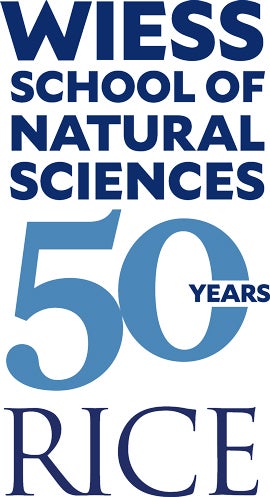Achievement and service are inseparable for Diana McSherry ’69, a nuclear physicist and serial entrepreneur whose curiosity about human origins led her to support graduate fellowships in Rice's Department of Biosciences.

“Rice was the key to a marvelous and extraordinary career for me,” said McSherry, who earned her Ph.D. from Rice. She gives back so Rice can offer similar opportunities to a new generation of scientists.
“It’s important to give back to the world,” she said, citing a lesson from her father. “Without using the specific phrase ‘noblesse oblige,’ my father communicated that because I had been given talent, determination and intelligence, I had an obligation to give back to others.”
Retired since 2020, McSherry had a remarkable career. From an early age, she’d wanted to know answers to core questions, such as “What are we made of?” and “How does it all work?” She earned a bachelor’s degree in physics from Harvard before entering graduate school at Rice, intent on studying particle physics to find the answers.
She also began pondering careers outside physics, where she might make a more tangible impact on society. “I thought, if I create something, I would like it to benefit people,” she said. And she got her chance when Houston-based Digicon, a seismic imaging company, hired her straight out of graduate school to adapt its imaging technology for medical applications.
She wound up pioneering ultrasound technology for medical imaging and helped launch DigiSonics, a technology firm whose software was used by cardiologists, obstetricians and other clinicians. “Thousands of people at hundreds of sites used that software,” she said. “It was immensely satisfying.”
She built and sold two multinational companies, and also developed an abiding curiosity about other fundamental questions, like “Where did we come from?” and “Why are we the way we are?” Interest in human origins led to a long association with The Leaky Foundation, where she is vice president and a member of the board of trustees. And as the development of genomic technology pushed research in the field, she’s increasingly supported research at Rice.

“As Rice moved to the forefront of biosciences, I really became interested in those projects,” McSherry said. “Every year they send me a list of a few projects and ask, ‘What would you like to support through your fellowship?’ It's wonderful! I love it. I get to read about exciting new discoveries — with Google very handy to make sure I can look up all terminology that is new to me. There is such joy in learning about the astounding advances in the biosciences.”
One project she’s supported is in the lab of synthetic biologist James Chappell.
“They created an RNA-based weapon to attack harmful bacteria,” McSherry said. “They can sequence the genome of the bacteria and then design an RNA weapon that will destroy it.” And when she learned the lab had nicknamed the technology “Raptor,” McSherry recalled saying, “Your science is great. Your marketing is brilliant!”
Supporting the search for new knowledge is satisfying, as is the very act of learning new facts about the world, McSherry said. From experience, she also knows that knowledge can be its own reward, particularly if it is hard-won. “Hurdles can be a positive step,” she said. “After you overcome the hurdle, there is satisfaction in acquiring a new capability as well as the confidence that comes when conquering a new challenge.”

